Ginger
Ginger is a flowering plant native to Southeast Asia. Its scientific name is Zingiber officinale. The part of the ginger plant that is commonly used is the rhizome, which is the underground stem of the plant. Ginger has a spicy and pungent flavor and is widely used as a spice in cooking, particularly in Asian cuisine.
Ginger is considered warm in nature. It is believed to have warming properties and can help to dispel cold from the body. Ginger has a pungent and slightly sweet taste. Ginger is said to enter the Lung, Spleen, and Stomach meridians in TCM. It is commonly used to address issues related to these organ systems.
In natural health, ginger is often used for its ability to warm the body, promote digestion, relieve nausea, and alleviate symptoms associated with cold and dampness. It is also thought to have anti-inflammatory properties and is used to treat certain types of pain and promote blood circulation.
In natural health, ginger (Zingiber officinale) is highly valued for its medicinal properties and is commonly used to promote health and address various conditions. Here are some of the ways ginger is used in natural health:
- Warming properties: Ginger is considered a warm herb, meaning it has a warming effect on the body. It is often used to treat conditions associated with cold or dampness, such as cold limbs, abdominal pain, and diarrhea.
- Promoting digestion: Ginger is known for its ability to stimulate digestion and relieve digestive discomfort. It is commonly used to treat symptoms like bloating, nausea, vomiting, and poor appetite.
- Dispelling cold and promoting circulation: Ginger is believed to have the ability to dispel cold from the body and promote circulation. It is often used for conditions characterized by coldness, such as cold hands and feet, menstrual cramps, and pain due to stagnation.
- Alleviating respiratory issues: Ginger is used to address respiratory conditions such as coughs, asthma, and congestion. It is believed to help dissolve phlegm, relieve chest tightness, and improve breathing.
- Relieving pain and inflammation: Ginger is considered to have anti-inflammatory properties and is used to alleviate pain, particularly in conditions like arthritis, joint pain, and headaches.
- Harmonizing the Middle Jiao: Ginger is known for its ability to strengthen the Spleen and Stomach, which are considered the "Middle Jiao" organs responsible for digestion and the transformation of food into energy. By promoting the proper functioning of these organs, ginger can help improve digestion and overall vitality.
Ginger nutritional benefits
Ginger is not only known for its flavor and medicinal properties but also offers several nutritional benefits. Here are some of the key nutritional components and health benefits of ginger:
- Vitamins and Minerals: Ginger contains various vitamins and minerals, including vitamin C, vitamin B6, potassium, and magnesium. These nutrients contribute to overall health and well-being.
- Antioxidants: Ginger is rich in antioxidants, such as gingerol, shogaol, and zingerone. Antioxidants help protect the body against oxidative stress and reduce the risk of chronic diseases.
- Anti-Inflammatory Properties: Ginger contains potent anti-inflammatory compounds that can help reduce inflammation in the body. Chronic inflammation is linked to various health conditions, including heart disease, diabetes, and certain types of cancer.
- Digestive Health: Ginger has been traditionally used to aid digestion and alleviate digestive discomfort. It can stimulate digestion, reduce bloating, and ease nausea, making it helpful for individuals with indigestion or an upset stomach.
- Nausea Relief: Ginger is well-known for its ability to alleviate nausea, including morning sickness during pregnancy, motion sickness, and post-operative nausea. It is often used as a natural remedy to reduce these symptoms.
- Immune Boosting: The antioxidants present in ginger can help strengthen the immune system and protect against infections. Ginger's antimicrobial properties may also have a positive impact on immune health.
- Blood Sugar Regulation: Some studies suggest that ginger may help regulate blood sugar levels. It may improve insulin sensitivity and have a beneficial effect on glucose metabolism, potentially benefiting individuals with diabetes or those at risk of developing the condition.
- Weight Management: Ginger may aid in weight management by boosting metabolism and reducing appetite. It may increase calorie expenditure and help control cravings, contributing to healthy weight loss or weight maintenance.
In Person With Heshoutang Natural Health Members
With Heshoutang Natural Health Online Members
Fill Out the Questionnaire by yourself
Ginger pharmacology
Ginger (Zingiber officinale) has been studied for its pharmacological properties and potential health benefits. Here are some key aspects of ginger's pharmacology:
- Active Compounds: Ginger contains several bioactive compounds, including gingerols, shogaols, paradols, and zingerone. These compounds are responsible for ginger's characteristic flavor, aroma, and pharmacological effects.
- Anti-inflammatory Effects: Ginger exhibits potent anti-inflammatory properties. The gingerols and related compounds in ginger can inhibit the production of inflammatory molecules in the body, potentially reducing inflammation and associated symptoms.
- Antioxidant Activity: Ginger is rich in antioxidants, which help protect cells from damage caused by free radicals. The antioxidant compounds in ginger may contribute to its overall health benefits and help reduce oxidative stress.
- Gastrointestinal Effects: Ginger has been traditionally used to promote digestion and alleviate gastrointestinal discomfort. It can stimulate the production of digestive enzymes, enhance gastric motility, and reduce intestinal inflammation.
- Antiemetic (Anti-Nausea) Effects: Ginger has a long history of use for relieving nausea and vomiting, including motion sickness, morning sickness during pregnancy, and post-operative nausea. Its antiemetic effects are believed to be due to the modulation of neurotransmitters and the reduction of gastric contractions.
- Cardiovascular Effects: Studies suggest that ginger may have cardiovascular benefits. It may help reduce blood pressure, lower cholesterol levels, and improve blood lipid profiles, potentially reducing the risk of heart disease.
- Anticancer Potential: Ginger has shown promising anticancer properties in laboratory studies. Some research suggests that gingerols and related compounds in ginger can inhibit the growth of cancer cells, induce apoptosis (programmed cell death), and exert anti-angiogenic effects.
- Immunomodulatory Effects: Ginger has been found to modulate the immune system. It may enhance immune function, stimulate the production of immune cells, and exert antimicrobial effects against certain pathogens.
It's important to note that while ginger has demonstrated these pharmacological effects in studies, further research is still needed to fully understand the mechanisms of action and clinical applications. Additionally, the effects of ginger can vary depending on the form (fresh, dried, extract, etc.) and the dosage used.
If you are considering using ginger for its potential health benefits or as a treatment for a specific condition, it's advisable to consult with a healthcare professional or a qualified herbalist to determine the appropriate dosage and potential interactions with any medications you may be taking.
To plant ginger, follow these steps:
- Choose a Ginger Rhizome: Look for a fresh, plump ginger rhizome (the part you will plant). You can find ginger rhizomes at grocery stores or garden centers. Select a rhizome that has firm, taut skin and several buds (small, greenish protrusions).
- Prepare the Soil: Ginger prefers loose, well-draining soil. Prepare the soil by loosening it and removing any rocks, weeds, or debris. If the soil is heavy or clayey, consider adding compost or organic matter to improve drainage.
- Soak the Ginger Rhizome: Before planting, soak the ginger rhizome in water overnight. This will help to hydrate it and promote sprouting.
- Choose a Planting Location: Select a location that receives partial sunlight or filtered light. Avoid areas with strong, direct sunlight, as ginger prefers a shaded environment.
- Plant the Ginger Rhizome: Dig a shallow trench or hole in the prepared soil. Place the ginger rhizome in the hole with the buds facing upward. Cover it with about 2-3 inches (5-7.5 cm) of soil, ensuring the rhizome is well-covered.
- Water the Ginger: After planting, water the ginger thoroughly. Keep the soil consistently moist but not waterlogged. Avoid overwatering, as excessive moisture can cause the rhizome to rot.
- Provide Adequate Care: Ginger plants require regular watering and humidity. If the environment is dry, consider misting the leaves or using a humidifier. Keep the soil consistently moist but not waterlogged.
- Harvesting: Ginger takes several months to mature. You can harvest ginger when the plant reaches its full height, typically around 8-10 months after planting. Carefully dig around the rhizomes and remove what you need, then cover the remaining rhizomes and continue to care for the plant.
Remember that ginger is a tropical plant and prefers warm temperatures above 50°F (10°C). If you live in a colder climate, you can plant ginger in containers and move them indoors during the colder months.
With proper care and attention, your ginger plant should thrive and produce fresh ginger rhizomes that you can harvest and use in cooking or for its medicinal properties.
When you subscribe to the blog, we will send you an e-mail when there are new updates on the site so you wouldn't miss them.

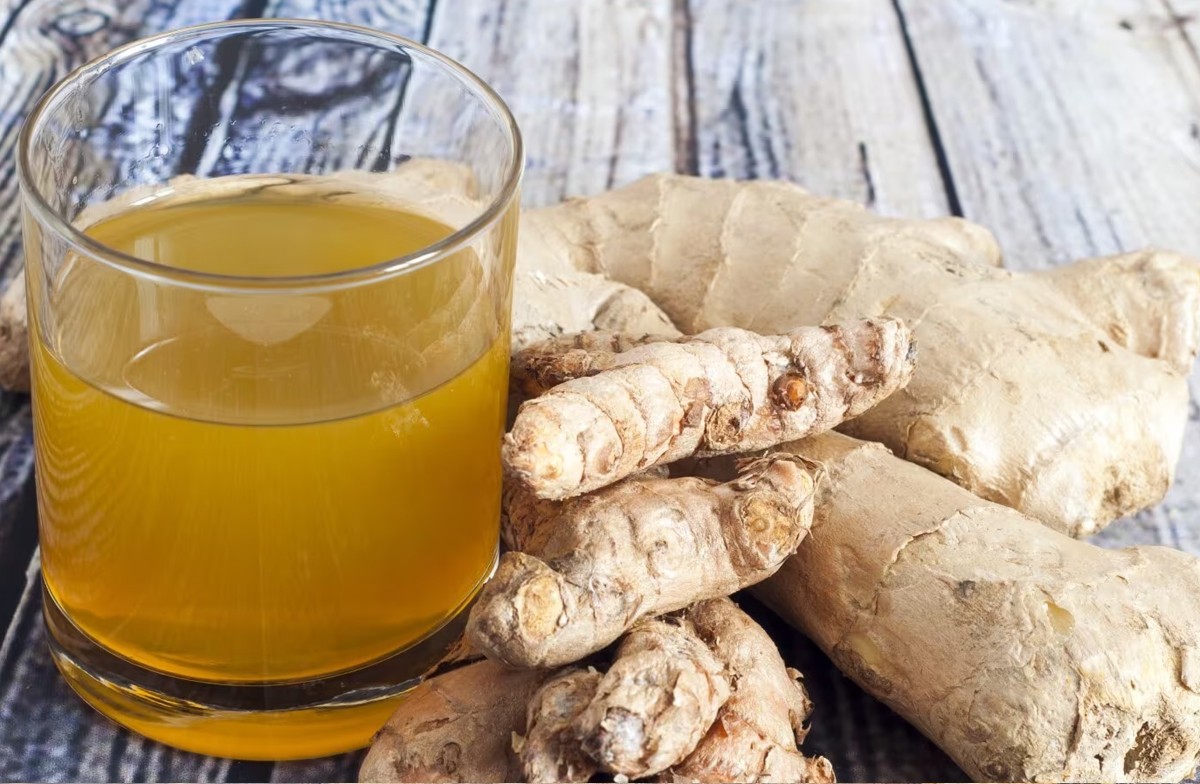
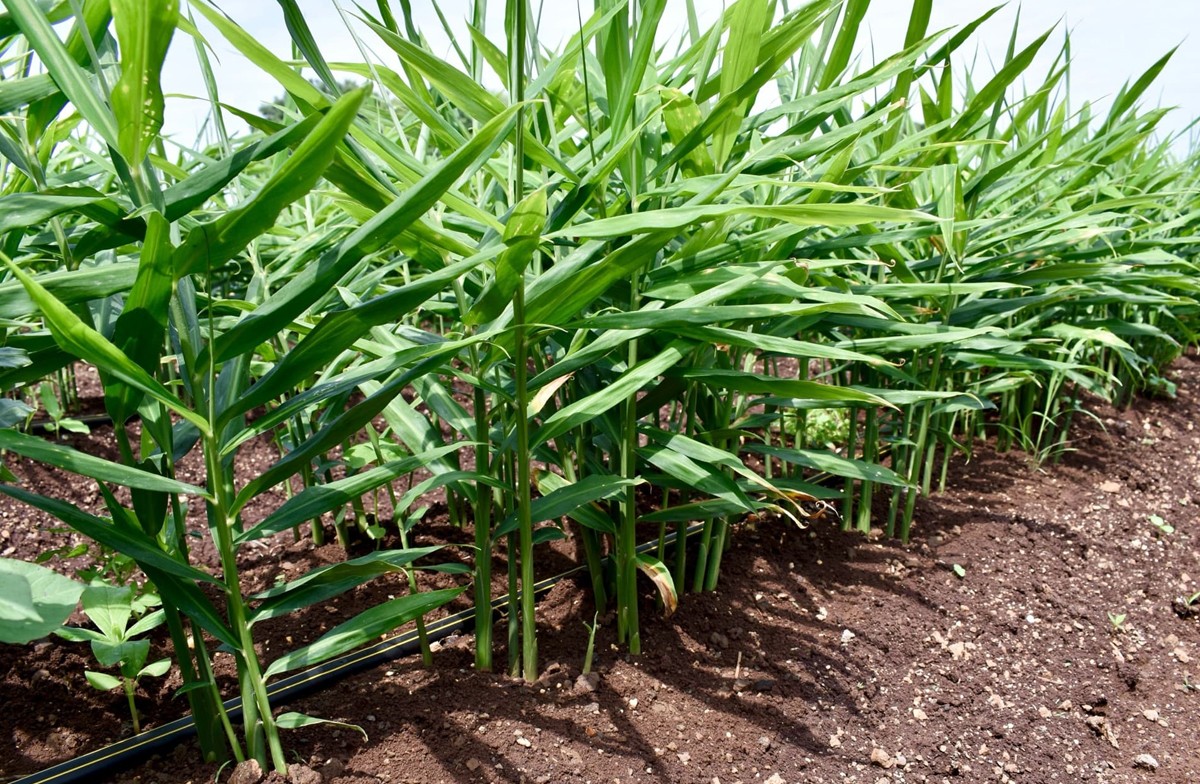
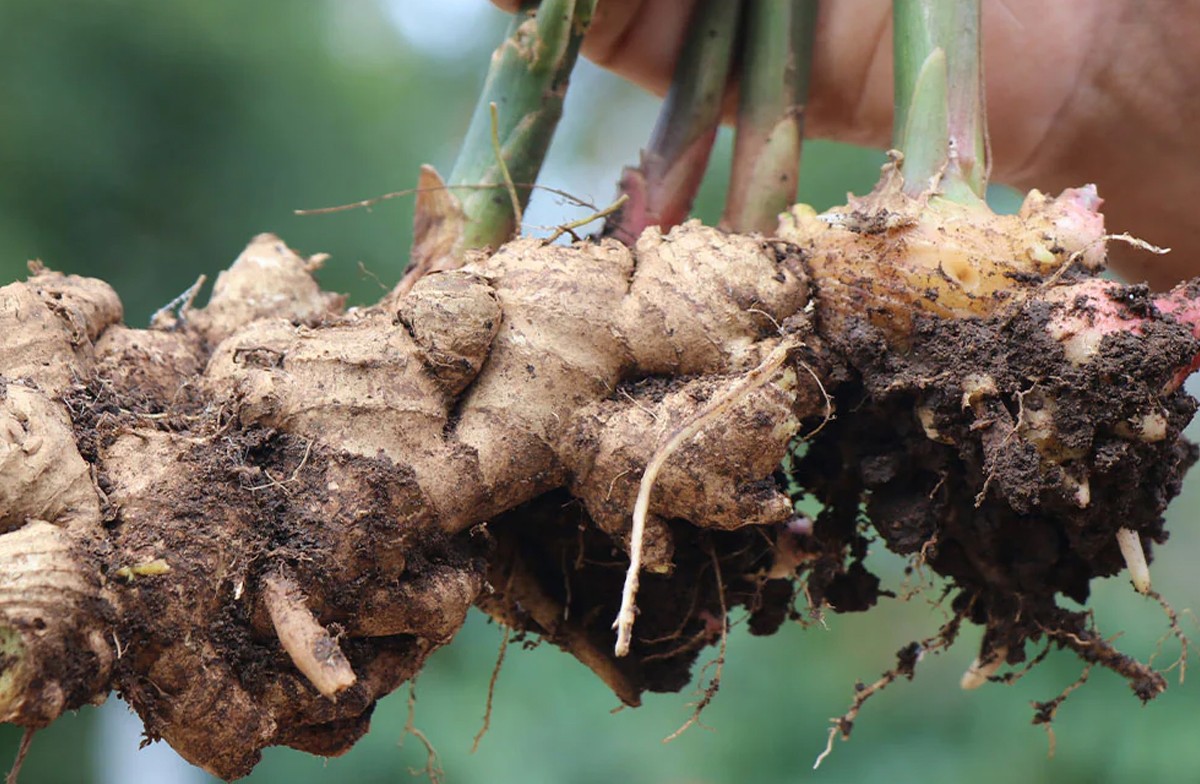
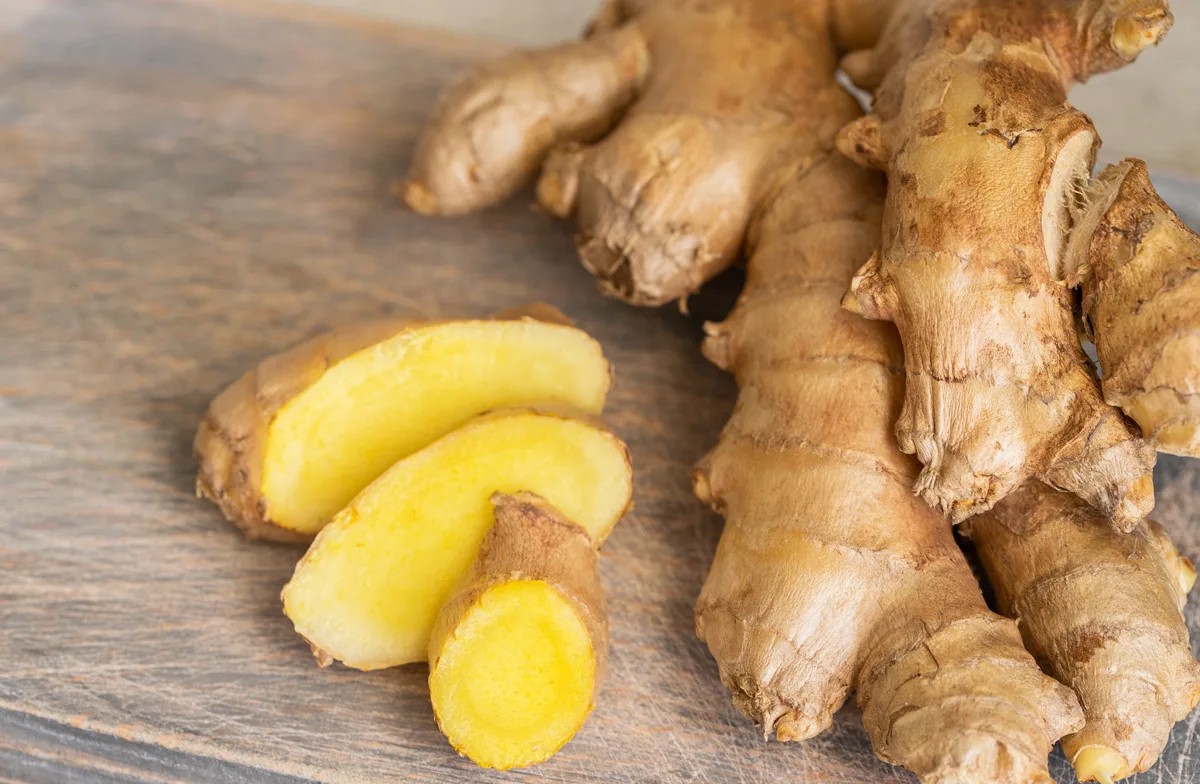
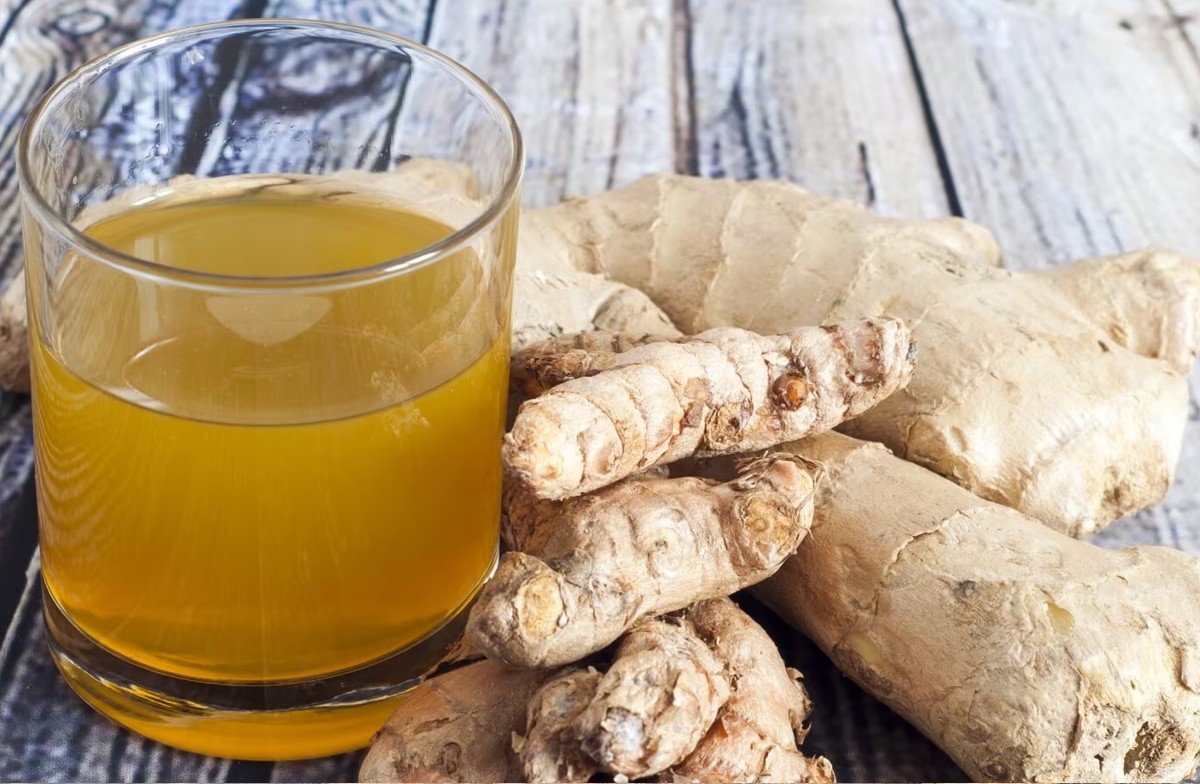












Comments